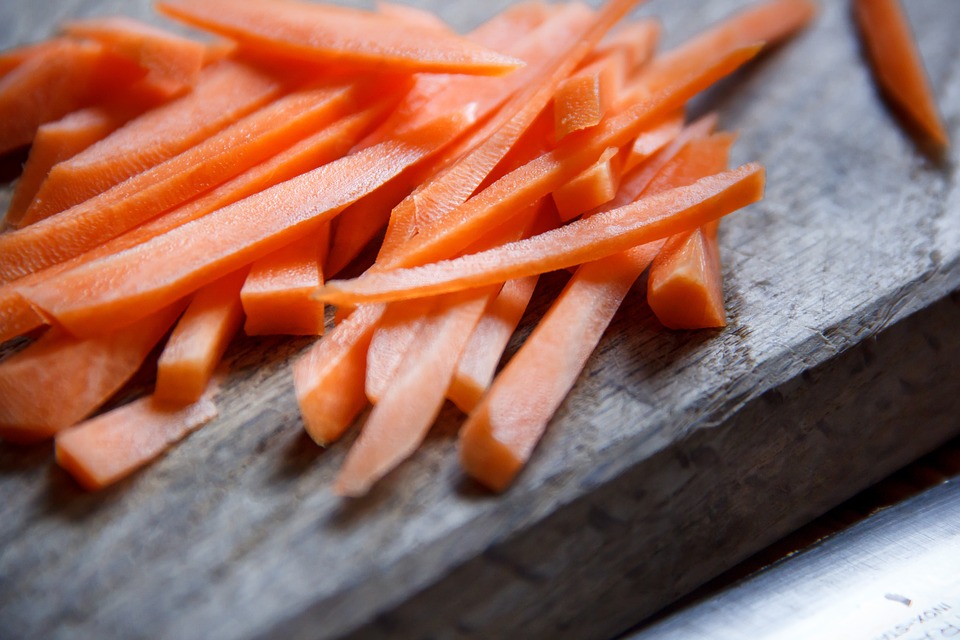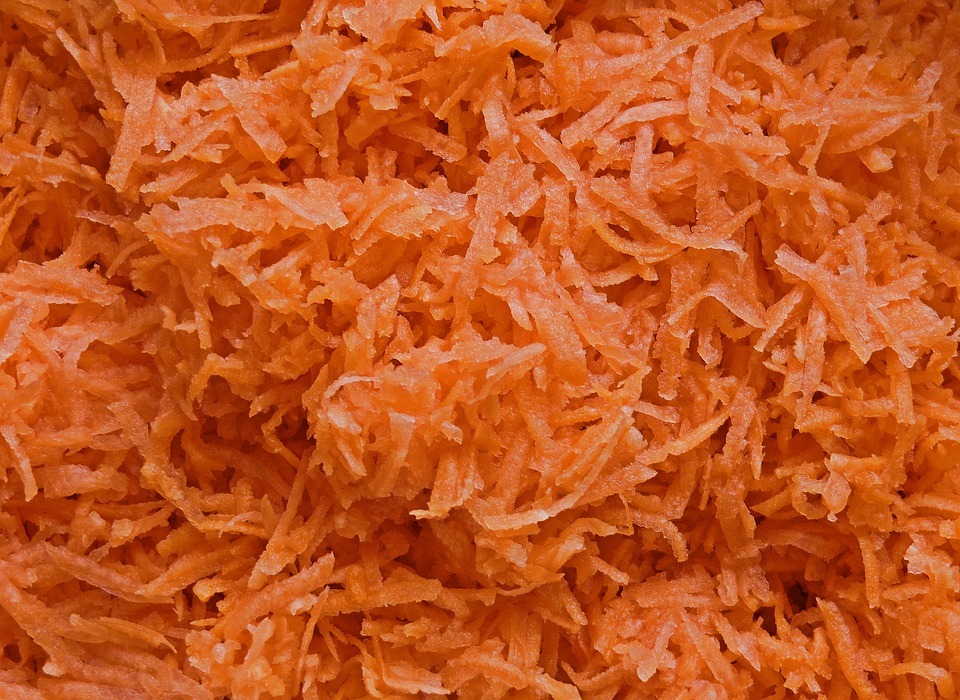This article delves into the fascinating world of wild rabbits and their dietary habits, exploring the question of whether they consume carrots, a food often associated with these furry creatures. We'll examine the nutritional value of carrots for rabbits, their natural diet in the wild, and the potential consequences of feeding them carrots.
Part 1: Understanding Wild Rabbits and their Environment

1.1 The Wild Rabbit: A Portrait
Wild rabbits (Oryctolagus cuniculus) are small mammals native to the Iberian Peninsula but now found in various parts of the world. They are known for their distinctive long ears, short tails, and a tendency to burrow.
1.2 Habitat and Distribution
Wild rabbits thrive in open habitats with access to vegetation, such as grasslands, meadows, and agricultural areas. They prefer areas with loose soil for burrowing, providing protection from predators and harsh weather conditions.
Part 2: The Wild Rabbit's Natural Diet - A Feast of Fibre and Variety

2.1 A Herbivore's Paradise
Wild rabbits are herbivores, meaning their diet consists entirely of plant matter. They are well-adapted for foraging, with strong incisors for gnawing and a digestive system designed to break down tough vegetation.
2.2 The Importance of Fibre
Fibre plays a crucial role in a wild rabbit's diet, aiding digestion, promoting gut health, and preventing dental problems. Their digestive system is designed to extract maximum nutrition from the fibrous plant matter they consume.
2.3 A Diverse Menu
Wild rabbits consume a wide range of plant materials, including:
- Grasses: A primary food source, providing essential carbohydrates, fibre, and minerals.
- Herbs: Dandelions, clover, plantain, and other herbs add flavour and additional nutrients, including vitamins and antioxidants.
- Twigs and Bark: Foraging on young twigs and bark provides crucial fibre and helps wear down their continuously growing teeth.
- Flowers: Wildflowers offer a source of nectar and pollen, contributing to their dietary needs and providing a seasonal variation in their food sources.
- Roots: Wild rabbits may occasionally dig for roots, primarily during the colder months or when other food sources are scarce. These provide additional carbohydrates and nutrients.
2.4 Seasonal Dietary Adaptations
Wild rabbits adapt their diet based on the seasons, consuming different plants and adjusting their foraging patterns. For example, they may focus on fresh, green grasses during the spring and summer, while relying more on roots and bark during colder months.
Part 3: Carrots - A Look at the Nutritional Content
3.1 Vitamin A Powerhouse
Carrots are renowned for their high vitamin A content, specifically beta-carotene, which the body converts into retinol. Vitamin A is essential for healthy vision, immune function, and cell growth.
3.2 Beyond Vitamin A: Other Nutrients
Carrots also offer:
- Vitamin K: Essential for blood clotting and bone health.
- Potassium: Plays a crucial role in fluid balance, muscle function, and nerve impulses.
- Fibre: Carrots provide a moderate amount of dietary fibre, contributing to healthy digestion.
- Antioxidants: Carrots contain antioxidants that may help protect cells from damage.
3.3 The Sugar Factor
While carrots are a healthy vegetable, they do contain a moderate amount of sugar, primarily fructose and glucose. Excessive sugar consumption can be detrimental to rabbits' health, leading to weight gain, dental problems, and digestive issues.
Part 4: The Debate: Can Wild Rabbits Safely Consume Carrots?
4.1 Arguments Against Carrots in a Wild Rabbit's Diet
- High Sugar Content: The sugar in carrots can contribute to various health problems, including obesity, dental issues, and digestive upset.
- Nutritional Imbalance: Carrots lack the diversity of nutrients found in a wild rabbit's natural diet. They are not a complete food source, and relying on them can lead to nutritional deficiencies.
- Digestive Issues: The high sugar content can disrupt the delicate balance of bacteria in a rabbit's gut, leading to digestive problems like diarrhoea, gas, and bloating.
- Unnatural Food Source: Wild rabbits are not accustomed to consuming cultivated carrots, which can be challenging to digest and may not provide the necessary nutrients.
4.2 Potential Benefits: A Limited Perspective
- Vitamin A: Carrots can be a source of vitamin A, which may be beneficial in certain situations, such as when a rabbit's natural diet is lacking in this nutrient.
- Occasional Treats: Occasional small pieces of carrot can be offered as a treat, but they should never be a primary food source. It's crucial to monitor consumption and avoid excessive amounts.
Part 5: The Risks of Feeding Carrots to Wild Rabbits
5.1 Dental Issues: A Sugar-Related Threat
The sugar in carrots can contribute to dental problems in rabbits. The sugar feeds bacteria in the mouth, leading to tooth decay and gum disease. Rabbits have continuously growing teeth, and an imbalance in their diet can cause dental issues.
5.2 Obesity: A Growing Concern
Excessive consumption of carrots, especially those with added sugar, can lead to obesity in rabbits, which can have severe health consequences. Obesity can contribute to cardiovascular problems, diabetes, and joint issues.
5.3 Digestive Disorders: Disrupting the Gut Balance
The sugar in carrots can disrupt the delicate balance of bacteria in a rabbit's gut, leading to digestive issues such as diarrhoea, gas, and bloating.
5.4 Dependency on Human Food: A Threat to Survival
Feeding wild rabbits carrots can lead them to become dependent on human food sources, making it harder for them to survive in the wild. They may lose their natural foraging skills and become reliant on humans for sustenance.
Part 6: Promoting Natural Diet and Wild Survival
6.1 Habitat Preservation: The Key to a Healthy Diet
Protecting and preserving wild rabbit habitats is crucial for ensuring their access to a natural diet. Providing safe spaces with abundant vegetation allows them to forage naturally and obtain the necessary nutrients.
6.2 Avoid Feeding Wild Rabbits: Let Nature Take its Course
It's essential to avoid feeding wild rabbits carrots or any other human food. This can disrupt their natural diet and behaviour, leading to health problems and dependency.
6.3 Observe From a Distance: Respecting their Wild Nature
If you encounter wild rabbits, it's best to observe them from a distance and avoid interfering with their natural behaviour. Let them thrive on their own terms in their natural habitat.
Part 7: Alternatives to Carrots for Domestic Rabbits
7.1 Fresh Herbs: A Tasty and Nutritious Choice
Offer a variety of fresh herbs, such as dandelion leaves, clover, plantain, parsley, and cilantro. These provide essential nutrients and fibre, making them a healthy addition to a rabbit's diet.
7.2 Timothy Hay: The Foundation of a Healthy Diet
Timothy hay is a primary food source for rabbits, providing crucial fibre and other nutrients. It helps keep their digestive system functioning correctly and helps wear down their teeth.
7.3 Pellet Food: A Supplement to a Balanced Diet
High-quality rabbit pellet food can supplement their diet with additional vitamins and minerals. Choose a pellet food formulated specifically for rabbits and avoid those with high sugar or artificial additives.
Part 8: Rabbits in Captivity: A Controlled Environment
8.1 A Carefully Controlled Diet
Domesticated rabbits require a carefully controlled diet under the supervision of their owners. Carrot consumption should be limited and monitored closely.
8.2 Consult a Veterinarian: Expert Guidance for Your Pet
Consulting with a veterinarian is essential to ensure that your rabbit's diet meets its specific needs and to address any health concerns.
Part 9: FAQs - Answering Common Questions About Wild and Domestic Rabbits
9.1 Are carrots toxic to rabbits?
Carrots are not toxic to rabbits, but excessive consumption can lead to various health problems.
9.2 Can I feed wild rabbits carrots?
It's best to avoid feeding wild rabbits carrots, as it can disrupt their natural diet and lead to health issues.
9.3 What are the best foods for wild rabbits?
Wild rabbits thrive on a diet of grasses, herbs, twigs, and bark, providing a balanced range of nutrients.
9.4 Can carrots cause dental problems in rabbits?
The sugar in carrots can contribute to dental problems, such as tooth decay and gum disease.
9.5 What should I do if I see a wild rabbit eating a carrot?
It's best to observe from a distance and avoid interfering.
9.6 Can I give my pet rabbit carrots?
Occasional small pieces of carrot can be offered as a treat, but they should never be a primary food source.
9.7 What if my pet rabbit loves carrots?
While your rabbit may enjoy carrots, it's crucial to offer them in moderation and focus on a balanced diet rich in hay, fresh herbs, and high-quality rabbit pellets.
Everyone is watching
-

Do Rabbits Lay Eggs? (The Surprising Truth)
OTHER TYPES OF PETSThis article will unravel the common misconception that rabbits lay eggs, exploring the fascinating world of r...
-

Can Rabbits Eat Grapes? A Guide to Safe Rabbit Treats
OTHER TYPES OF PETSThis comprehensive guide will explore the safety and suitability of grapes for rabbits, providing detailed inf...
-

What's a Group of Rabbits Called? (A Comprehensive Guide)
OTHER TYPES OF PETSThis article delves into the fascinating world of rabbits, exploring the various terms used to describe a grou...
-

Predators That Hunt Rabbits: A Guide to Natural Enemies
OTHER TYPES OF PETSI've always been fascinated by the circle of life, that delicate dance between predator and prey. Growing up ...
-

Are Rabbits Nocturnal Animals?
OTHER TYPES OF PETSThe question of whether rabbits are nocturnal animals is a fascinating one, with a surprisingly complex answer...
